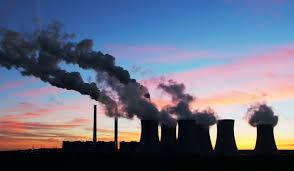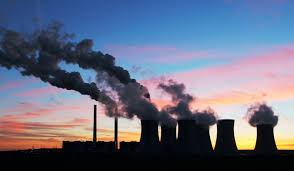
Carbon Tracker, a think-tank that is focused on examining the impact of climate change on financial markets, has claimed that no profits are made by at least four-fifths of coal-fired power plants in the European Union.
The study, which was published in a the form of a new report recently, inefficient and highly polluting facilities could result in losses of 6.6 billion euros or $7.3bn this year alone for utilities in Europe.
Suggestion of a complete phase out of coal by 2030 was made in the report, titled, Apocoalypse Now, to policymakers and investors.
One of the important facts that have emerged from the report is that it is not possible for the coal industry to carry on if it is not provided any subsidies because of increasing competition from solar and wind power which is getting more affordable. Natural gas, which is already used extensively, is also cleaner and cheaper than coal.
Coal based energy is being made more and more unpalatable because of rising carbon prices, increasing affordability of renewable prices and the imposition of strict air pollution regulations. The percentage of loss making coal capacity in the European Union in 2017 was 46 per cent. And but currently that rate has increased to 79 per cent.
The report noted that there has been a dramatic decrease in the last two years in the earnings before interest, taxes, depreciation and amortisation (EBITDA) per megawatt-hour of EU coal power if the long-run marginal costs are factored in. Such costs include the total price of fuel and carbon and other variable and fixed expenses.
The country that is most exposed to the decline of coal of Germany and is followed by Spain and the Czech Republic, said the report from the Carbon Tracker, following an analysis of the economics of every EU coal-fired power plant.
"EU coal generators are haemorrhaging cash because they cannot compete with cheap renewables, and this will only get worse as carbon prices rise," said Matt Gray, co-author of the report and head of Power & Utilities at Carbon Tracker.
The coal based power generation company that is facing the greatest losses from coal is RWE, Germany's second-largest electricity producer. The report noted that the company is slated to potentially lose 975 million euros or $1.08bn which is equivalent to six percent of its market valuation. According to the report PPC, in Greece, risks the loss of 596 million euros or $663m and Prague-based EPH could lose 613 million euros or $681m.
Governments will face "intractable problems if they seek to support coal in the long term because they will have to choose whether to: pass costs to the utilities and destroy shareholder value; pass costs to consumers and push bills up; or fund them from debt or taxes", said Carbon Tracker in a press release.
"The economics of coal generation in the EU are becoming untenable for operators without significant subsidies from the state," said the report. "Phasing out coal in a timely, cheap and just way will require considerable foresight."
(Source:www.aljazeera.com)
The study, which was published in a the form of a new report recently, inefficient and highly polluting facilities could result in losses of 6.6 billion euros or $7.3bn this year alone for utilities in Europe.
Suggestion of a complete phase out of coal by 2030 was made in the report, titled, Apocoalypse Now, to policymakers and investors.
One of the important facts that have emerged from the report is that it is not possible for the coal industry to carry on if it is not provided any subsidies because of increasing competition from solar and wind power which is getting more affordable. Natural gas, which is already used extensively, is also cleaner and cheaper than coal.
Coal based energy is being made more and more unpalatable because of rising carbon prices, increasing affordability of renewable prices and the imposition of strict air pollution regulations. The percentage of loss making coal capacity in the European Union in 2017 was 46 per cent. And but currently that rate has increased to 79 per cent.
The report noted that there has been a dramatic decrease in the last two years in the earnings before interest, taxes, depreciation and amortisation (EBITDA) per megawatt-hour of EU coal power if the long-run marginal costs are factored in. Such costs include the total price of fuel and carbon and other variable and fixed expenses.
The country that is most exposed to the decline of coal of Germany and is followed by Spain and the Czech Republic, said the report from the Carbon Tracker, following an analysis of the economics of every EU coal-fired power plant.
"EU coal generators are haemorrhaging cash because they cannot compete with cheap renewables, and this will only get worse as carbon prices rise," said Matt Gray, co-author of the report and head of Power & Utilities at Carbon Tracker.
The coal based power generation company that is facing the greatest losses from coal is RWE, Germany's second-largest electricity producer. The report noted that the company is slated to potentially lose 975 million euros or $1.08bn which is equivalent to six percent of its market valuation. According to the report PPC, in Greece, risks the loss of 596 million euros or $663m and Prague-based EPH could lose 613 million euros or $681m.
Governments will face "intractable problems if they seek to support coal in the long term because they will have to choose whether to: pass costs to the utilities and destroy shareholder value; pass costs to consumers and push bills up; or fund them from debt or taxes", said Carbon Tracker in a press release.
"The economics of coal generation in the EU are becoming untenable for operators without significant subsidies from the state," said the report. "Phasing out coal in a timely, cheap and just way will require considerable foresight."
(Source:www.aljazeera.com)





